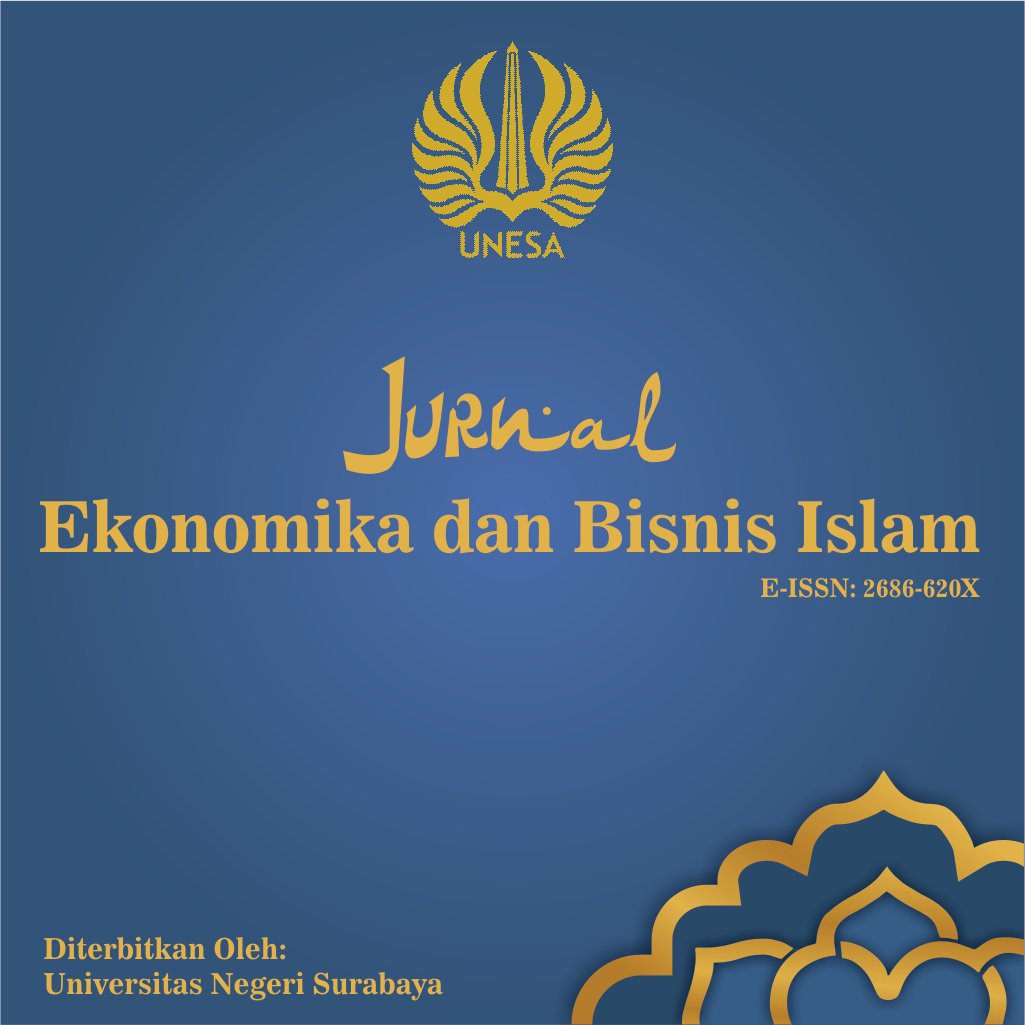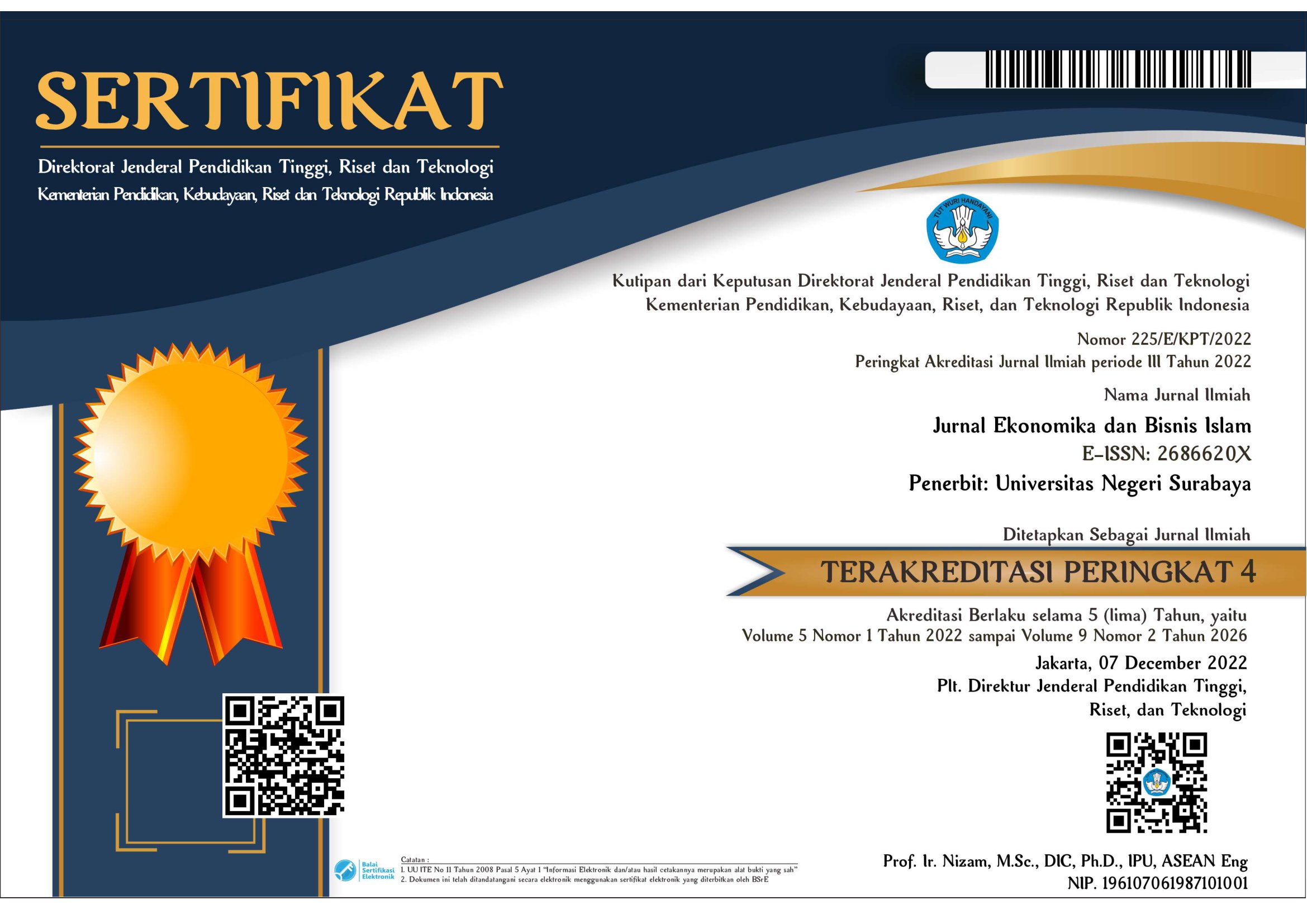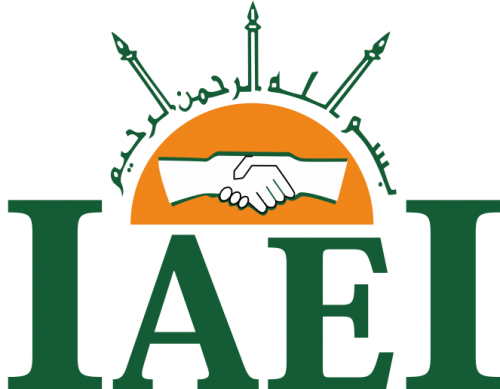Analisis Lebel Halal Produk Makanan Cepat Saji dalam Pengembangan Wisata Halal di Surabaya
DOI:
https://doi.org/10.26740/jekobi.v4n3.p108-122Keywords:
Fast food, Halal Label, MUIAbstract
The purpose of this study is to determine the understanding, assessment, and attitudes given by the community regarding the halal labeling of fast food sold by fast food business outlets and its impact on the development of halal tourism in Surabaya. This study uses a descriptive qualitative approach that aims to analyze public perceptions of the halal labeling of fast food. The object of research taken is located in Surabaya. This study uses two data sources which include primary data through online interviews and secondary data obtained from previous research literature. This study uses analysis technique that include data reduction, data presentation, and drawing conclusions. The results of this study indicate that the public has a high awareness of being more consumptive about the halal and haram of a product according to Islamic law and the MUI fatwa. The form of awareness in the form of supporting halal labeling obtained from MUI on the attributes of fast food business outlets in order to ensure the safety of the products consumed and minimize fraud committed by business actors. The positive impact of halal labeling is the development of halal tourism in the city of Surabaya, which provides an increase in the economy of local businesses and lures tourists to visit the city of Surabaya.
References
Amandea, A. (2019). Tren Makanan Siap Saji Diperkirakan Meningkat di 2020-2027, Bisa Jadi Ide Bisnis. https://kumparan.com/kumparanfood/tren-makanan-siap-saji-diperkirakan-meningkat-di-2020-2027-bisa-jadi-ide-bisnis-1vGlh0kfnJz (Diakses pada tanggal 30 Maret 2021)
Faridah, H. D. (2019). Halal Certification in Indonesia: History, Development, and Implementation. Journal of Halal Product and Research Volume. 2 (2) .
Fatwa Majelis Ulama Indonesia Nomor 4 Tahun 2003 tentang Standarisasi Fatwa Halal.
Kemenag. Al-Baqarah ayat 168. https://quran.kemenag.go.id/sura/2 (Diakses pada tanggal 23 April 2021)
Kemenag. Yunus ayat 59. https://quran.kemenag.go.id/sura/10 (Diakses pada tanggal 9 Mei 2021)
LPPOM MUI. (2019). Strategi UMKM Indonesia dalam Persiapan Wajib Sertifikasi Halal. http://www.halalmui.org/mui14/main/detail/strategi-umkm-indonesia-dalam-persiapan-wajib-sertifikasi-halal. (Diakses pada tanggal 8 Mei 2021)
Mediani, M. (2017). Mi samyang U-Dong dan Kimchi Masih Beredar di Surabaya. https://www.cnnindonesia.com/nasional/20170620074559-20-222921/mi-samyang-u-dong-dan-kimchi-masih-beredar-di-surabaya (Diakses pada tanggal 30 Maret 2021)
Nurdiansyah, R. (2019). Budaya Pola Konsumsi Makanan Cepat Saji dalam Kehidupan Remaja Jakarta ( Studi Kasus : Franchise KFC ). Skripsi. Universitas Islam Negeri Syarif hidayatullah.
Sugiyono. (2019). Metode Penelitian Kuantitatif, Kualitatif, dan R&D. Bandung: Alfabeta Bandung.
Sulaiman, M.R . (2019). Haram Gunakan Kata Setan dan Iblis, Ini Kata Pemilik Rawon Setan. https://www.suara.com/lifestyle/2019/10/02/230228/haram-gunakan-kata-setan-dan-iblis-ini-kata-pemilik-rawon-setan (Diakses pada tanggal 8 Mei 2021)
Syukri, L. (2018). Pentingnya Makanan Halalan Thayyiban (1). https://legiminnjrhjdudududieuroty.gurusiana.id/article/2018/12/pentingnya-makanan-halalan-thayyiban-1-1699776?bima_access_status=not-logged (Diakses pada tanggal 8 Mei 2021)
Terjemahan M. Ttatam Wijaya. (2017). Al-Halal wa al-Haram fi al-Islam/Yusuf al Qardhawi. Cetakan 1, Qalam. Jakarta. Indonesia.
Tim Pengkajian Hukum. (2011). Tim Pengkajian Hukum tentang Peran serta Masyarakat dalam Pemberian Informasi Produk Halal.
Undang-Undang Republik Indonesia No. 33 Tahun 2014 tentang Jaminan Produk Halal.
Downloads
Published
How to Cite
Issue
Section
License
This work is licensed under a Creative Commons Attribution 4.0 International License.
 Abstract views: 1235
,
Abstract views: 1235
, PDF Downloads: 1434
PDF Downloads: 1434














